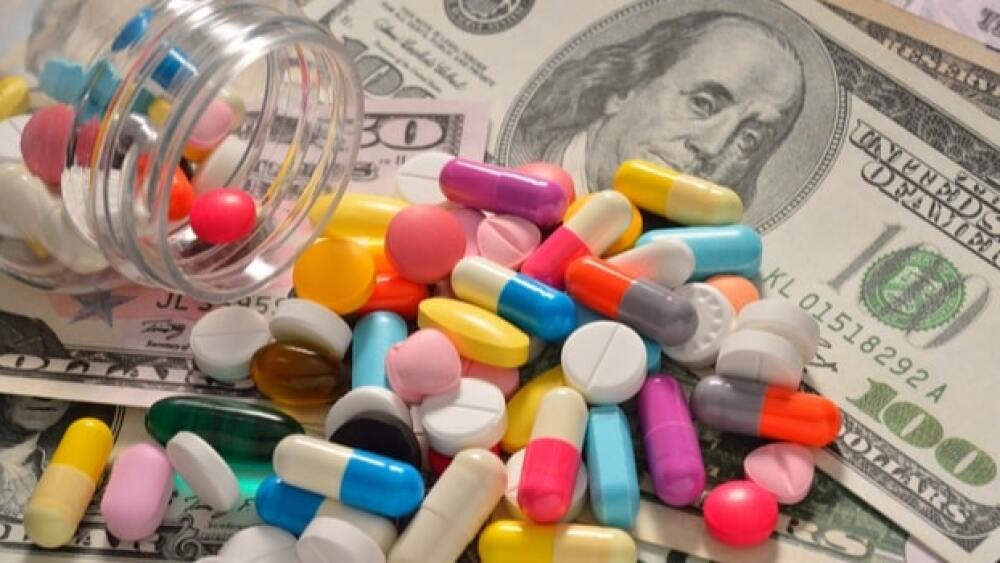Calls for a reform of drug prices have become a regular occurrence, particularly in the midst of political campaigns. Yet a new report shows the median price of a new drug launched in 2021 was $180,000.
Calls for a reform of drug prices have become a regular occurrence, particularly in the midst of political campaigns.
Despite those numerous calls for reform, prices continue to rise, according to a new report that shows the median price of a new drug launched in 2021 was $180,000.
The study, which was conducted by researchers at Brigham and Women’s Hospital and published in JAMA, focused on 548 brand-name drugs. The study shows that unadjusted mean launch prices for new drugs have risen 20% per year since 2008. According to the report, the average mean price for a new drug in 2008 was $2,115.
For the past two years, the study noted that 47% of all new drugs launched in 2020 and 2021 had a price tag set at more than $150,000 per year. The drugs that had the highest price were those for rare diseases, which have a smaller patient pool. The average price for those drugs was $263,700. Oncology drugs introduced during those two years had a median price of $115.100.
Benjamin Rome, a physician in the Division of Pharmacology and Pharmacoeconomics at Brigham and Women’s Hospital and one of the study authors, said the data indicates that price controls are needed, including a provision that would allow Medicare to negotiate drug prices, the Denver Post reported.
“The most recent reforms included in the Build Back Better Act were a good start but they would not have allowed Medicare to negotiate prices on new drugs for 9 to 13 years after they are launched,” he said, according to the Post. “Other countries negotiate prices for drugs soon after they are marketed, based on the clinical benefits they offer to patients over existing therapies.”
The Build Back Better program, which was proposed by the Biden administration, would have allowed Medicare to negotiate prices and capped out-of-pocket costs for prescription drugs for senior citizens. A key provision related to drug prices in the Biden plan is that the legislation, which has already been approved by the U.S. House of Representatives, would cap insulin costs to $35 per month for those covered under government insurance programs. Biden’s proposal is in political jeopardy due to the even split in the U.S. Senate.
Still, some senators are pushing for some kind of control. This week, Democrat U.S. Senator Raphael Warnock of Georgia called for a cap on out-of-pocket costs of insulin. In an open letter to Majority Leader Sen. Charles Schumer, D-NY, Warnock said diabetics who rely on life-saving insulin are “hurting as they experience rising costs, spurred by corporate greed.” He said patients cannot afford to wait for these pricing reforms.
“Every day that we waste by not passing legislation to address the cost of insulin, means another day that Georgians struggle to get the medication they need to survive. In Georgia, over 1 million people have diabetes, which is 12 percent of the state’s adult population. Another nearly 240,000 Georgians are likely living with undiagnosed diabetes. While not all diabetics use insulin, those who do use it need it to survive,” Warnock wrote.
According to a 2020 report from the U.S. Department of Health and Human Services, the average gross manufacturer price for a standard unit of insulin in 2018 was more than 10-times the price of insulin in 32 non-U.S. Organization for Economic Co-operation and Development (OECD) countries. The report also showed that costs were around eight times higher than in all other countries. The Senate had been expected to take up a proposal to limit insulin costs this past spring. However, that has yet to happen.
While the pharmaceutical industry typically takes the brunt of the blame, industry representatives have pointed the finger at the insurance industry and pharmacy benefits managers (PBMs) for the high costs of drugs.
On Tuesday, the Federal Trade Commission announced it launched a probe into these claims. The commission noted the impact the PBMs have on the pricing structure of prescription drugs, as well as which drugs can be covered by insurance, and is calling for the six largest pharmacy benefits managers to turn over records regarding their business practices. The inquiry will examine pharmacy benefit managers’ role in the U.S. pharmaceutical system. Those PBMs at the center of the inquiry are CVS Caremark, Express Scripts, OptumRx, Humana, Prime Therapeutics LLC and MedImpact Healthcare Systems, Inc.
“Although many people have never heard of pharmacy benefit managers, these powerful middlemen have enormous influence over the U.S. prescription drug system, ” said Lina M. Khan, Federal Trade Commission Chair, in a statement. “This study will shine a light on these companies’ practices and their impact on pharmacies, payers, doctors, and patients.”





